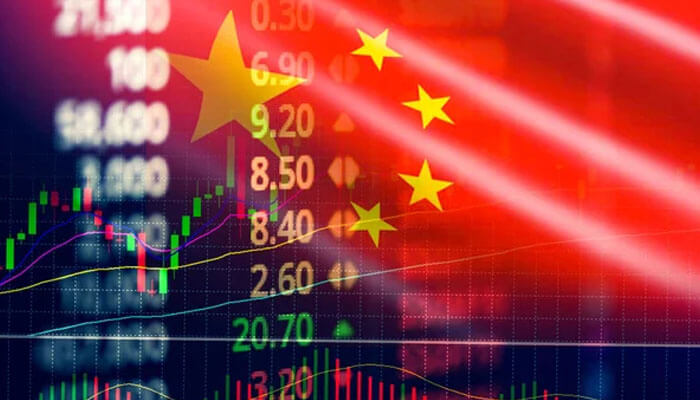The central bank reduced its 1-year loan prime rate (LPR) by 10 basis points, bringing it to an all-time low of 3.45%. Strangely, the PBoC decided to maintain the 5-year LPR—the benchmark rate for mortgages—at 4.2%, raising questions about its commitment to reviving the real estate market.
The move to lower short-term lending rates while maintaining long-term rates the same has sparked a heated discussion, putting investors on edge and casting doubt on the overall financial environment.
Adding to the growing list of investment firms that have revised their predictions for China’s economic growth are Citigroup and UBS Group AG. A more conservative UBS revised its estimate to 4.2%, making it one of the more pessimistic forecasts, while Citigroup cut its estimate for 2023 GDP growth from 5% to 4.7%.
Following the biggest losing streak of seven days since late 2021, the Hang Seng Index in Hong Kong increased by almost 2% in a matter of minutes. According to one technical indicator, around half of the index’s equities were oversold as of Monday, the largest percentage since March 2022. The benchmark for mainland shares, the CSI 300 Index, ended the day up 0.8% after briefly falling as much as 0.7%. On Monday, the measure was at its highest oversold level since early June.
As equities increased, a lot of market participants speculated about the prospect of purchases by state-backed entities. Each of the previous two weeks saw a decline in the CSI 300 gauge, and prior events have demonstrated how purchases made by the so-called “national team” might reduce losses. Other traders highlighted a Saturday Caixin article that claimed China was considering taking stronger action to handle the risks associated with local government financing vehicles.
“Most people I spoke with found the action this afternoon to be rather confusing. There were numerous theories, but no conclusive reason has been offered, according to Willer Chen, senior analyst at Forsyth Barr Asia Ltd. However, he continued, “It is also reasonable to see some technical rebound” in light of the recent significant losses.
Meanwhile, on a net basis, foreign investors kept selling onshore Chinese stocks. On Tuesday, they withdrew 6.4 billion yuan ($875 million), extending a record-breaking selling streak to 12 days. According to data gathered by Bloomberg, Chinese stock turnover was roughly 800 billion yuan, which was largely in line with the monthly average.
The movements on Tuesday also seem to indicate that traders are uneasy due to the ongoing losses in Chinese stocks. Due to poor economic statistics, worries about deflation, and a downturn in the real estate market that now poses a threat of a catastrophe in the shadow banking sector, investor mood has declined in recent weeks. A measure of Chinese stocks listed in Hong Kong has lost more than 11% of their value so far in August, outperforming 92 global market indexes monitored by Bloomberg in that regard.
Simply said, there are no obvious catalysts. The National Team’s activity is the only answer that comes to mind, according to Brock Silvers, chief investment officer of private equity company Kaiyuan Capital in Hong Kong.
Tuesday’s trading session saw the Hang Seng Index end 1% higher. 2% more was added to the Hang Seng Tech Index.



